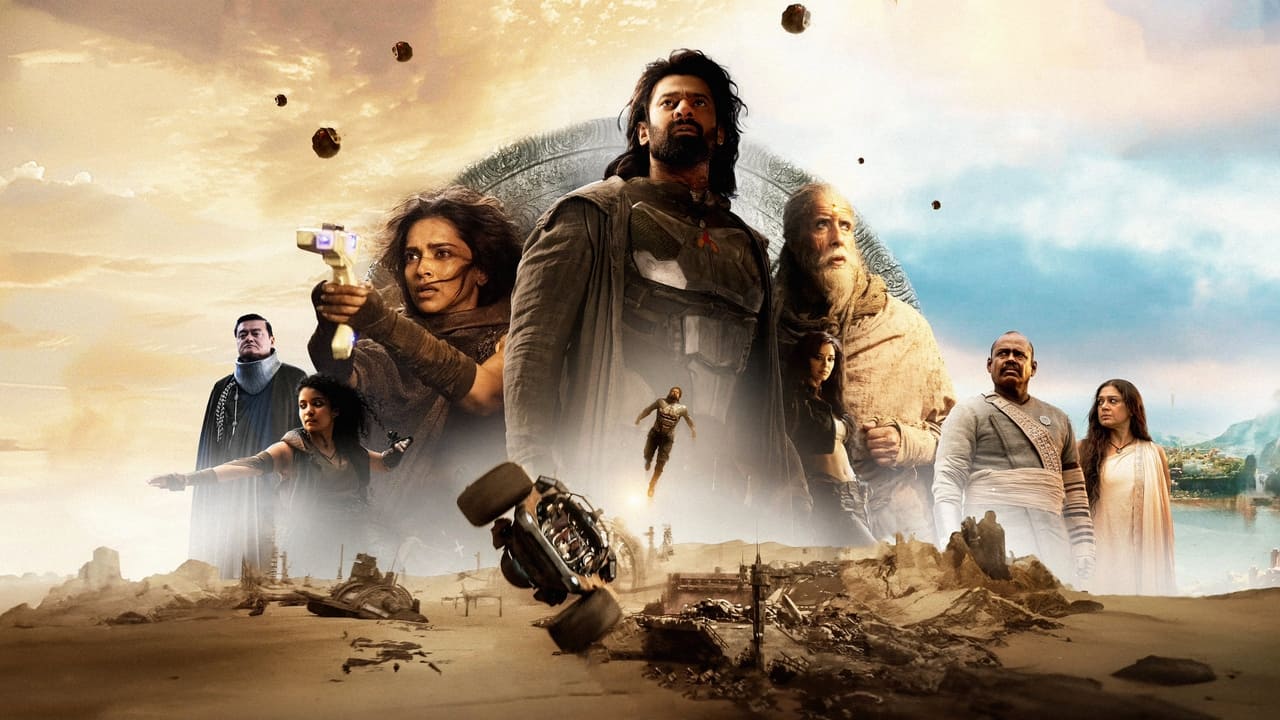Kalki 2898 AD: A Visionary Blend of Mythology and Sci-Fi
In the ever-evolving landscape of Indian cinema, "Kalki 2898 AD" emerges as a groundbreaking spectacle that pushes the boundaries of storytelling and visual artistry. Directed by the visionary Nag Ashwin, this ambitious project weaves together elements of ancient mythology and futuristic science fiction, creating a tapestry that is as thought-provoking as it is visually stunning.
A Tale Across Millennia
Set in a dystopian future, "Kalki 2898 AD" draws its core narrative from the depths of Hindu mythology, specifically the Mahabharata. The film follows the prophesied hero Kalki, played by Prabhas, on a journey to restore balance to a world teetering on the brink of chaos. Ashwin's screenplay masterfully bridges the gap between the ancient and the futuristic, creating a narrative that feels both timeless and urgently relevant.
Visual Splendor and Technical Prowess
One of the film's most striking aspects is its visual presentation. The production design team has crafted a post-apocalyptic world that is both believable and awe-inspiring. From the gritty, lived-in feel of rebel hideouts to the sleek, oppressive architecture of the antagonist's strongholds, every frame is a feast for the eyes.
The visual effects, while occasionally uneven, often reach heights of breathtaking spectacle. Scenes of futuristic cityscapes and epic battles showcase the film's ambition and the technical capabilities of Indian cinema. Santhosh Narayanan's score complements the visuals perfectly, adding emotional depth and excitement to key moments.
Star-Studded Performances
The cast of "Kalki 2898 AD" reads like a who's who of Indian cinema, and for the most part, they deliver. Prabhas brings a mix of intensity and vulnerability to Kalki, though his character development feels somewhat uneven across the film's runtime. Deepika Padukone shines in her role, bringing strength and emotional resonance to her character.
However, it's Amitabh Bachchan who steals the show with a commanding performance that anchors the film's more philosophical moments. Kamal Haasan's appearance as the antagonist Yaskin is brief but impactful, leaving audiences wanting more.
Ambitious Storytelling with Room for Improvement
While the film's ambition is commendable, its execution occasionally falters. The pacing in the first half can feel sluggish, with some scenes stretched beyond necessity. The narrative complexity, while intriguing, sometimes verges on convoluted, potentially leaving viewers struggling to keep up with the intertwining plotlines.
However, the film hits its stride in the final act, delivering a series of revelations and set pieces that are truly exhilarating. The climax not only provides a satisfying conclusion to the immediate story but also tantalizes with hints of a larger cinematic universe to come.
A New Benchmark for Indian Cinema
Despite its flaws, "Kalki 2898 AD" represents a significant leap forward for Indian cinema. Nag Ashwin's vision in blending mythology with science fiction opens up exciting new possibilities for storytelling in the industry. The film's willingness to tackle complex themes and its technical achievements set a new benchmark for what is possible in Indian filmmaking.
Conclusion
"Kalki 2898 AD" is more than just a movie; it's an experience. While it may not be perfect, its ambition, visual splendor, and the questions it poses about destiny, technology, and the cyclical nature of good and evil make it a must-watch for fans of both Indian cinema and science fiction. As the first installment in what promises to be an epic saga, "Kalki 2898 AD" lays a foundation that leaves audiences eagerly anticipating what's to come.
Rating: 4 out of 5 stars
Bold, ambitious, and visually stunning, "Kalki 2898 AD" heralds a new era for Indian cinema, blending mythology and futurism in a way that's never been seen before on the silver screen.
